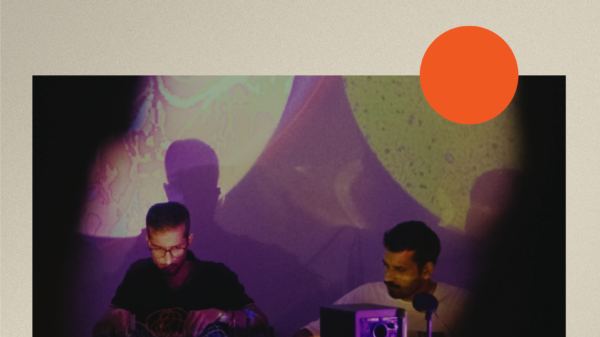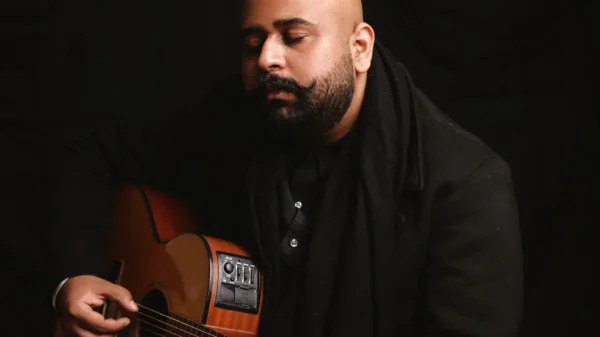It is a well acknowledged fact that there is a huge contrast between the Laws and the Industry practices in our country. This article is an honest attempt to bridge the gap between the legal and the creative arts community. Please do not confuse this information for legal advice.
Watch out for these clauses:
Primarily, it is important for the artist to understand what type of contract he/she/ they are entering into. Once the purpose of the contract is established, these are the clauses you can look out for.
TERM: Speaking from the creator-first perspective, it is advisable to not overcommit and stick to a shorter term. With a shorter term, the artist can renew and re-sign the contract and get offered a better deal when things are on the rise. And if things seem to be failing, the artist can get out of the deal and find a better alternative for themselves.
OPTION PERIOD: Mostly, the term clause of a contract will also contain the “option” periods, which is typically designed to extend the term of the contract by the contracting party. In a perfect world, this option can only be exercised by a mutual agreement.
OWNERSHIP OF RIGHTS: Any artist entering into any contract must pay attention to this clause. Time and again, it has proven to be advisable to “Never sell your MASTERS”. These are a set of rights that determine the ownership of the right to sell, reproduce, license, and copy the recordings of your music. Unfortunately, we do not live in a perfect world and the sale of masters is a prevalent and the most exploited practice.
ROYALTIES: Royalties is the primary and the most basic way by which an artist can make money off of their music/ recording. They are also a primary way for a record label/ publisher representing you, to make money off your success.[i]

Therefore, it becomes extremely important for the artists to understand the standard industry practice involving royalty rates. Hence, it is important to appoint a legal counsel for yourself who can advocate and negotiate the royalty rates that meet industry standards, providing you with financial security.
From most deals, a typical artist can expect a royalty rate of 12-20%, (unless you are Kanye and receive 25% from the “Yeezus” album), and it is advised to not accept anything less than that.
It is essential to explicitly state the division of profits/ losses from licensing/ sale/ transfer deals of the work created by the artist. This can be a 50-50 cut or in percentage terms, that has been mutually agreed by the contracting parties.
Broadly speaking, an artist receives royalties on his composition and his master recordings and these royalties can be royalties received from live performances and public streaming, mechanical royalties from the (online/offline) sale of each song, royalties received from Sync licensing or sampling, i.e.; when the entire song or a part of the song is used in an Audio-visual or just an audio content. Additionally, royalties/ revenue can also be generated from Branding, and by registering yourself with IPRS, and PPL (Phonographic Performance Limited) Society, which is a copyright society and grants licenses for public performances and generates revenue at times your song is played in the public.
EXCLUSIVITY: Under this clause, an artist can only sell/license/transfer his exclusive original work to the contracting party and cannot license or sell it to a third party. In cases of exclusivity, the ownership and the Intellectual Property rights associated with the work are transferred to the contracting party. In most cases, it is considered unwise to enter into such a contract unless extremely sure and aware of it. As an artist, it is always beneficial to retain all the rights to reproduce your work and bear the fruits from the sale of it.
DISPUTE RESOLUTION: This clause talks about the mode of resolution of any disputes or controversies that arise out of the contract or related to the contract such as a breach, termination or invalidity of any statements made by the contracting parties. In such situations, the parties try to settle the matter by mediation, arbitration or negotiation in good faith. Most parties do not take the matter to the court due to time and economic constraints.
Therefore, it becomes extremely important for the artists to understand the standard industry practice involving royalty rates. Hence, it is important to appoint a legal counsel for yourself who can advocate and negotiate the royalty rates that meet industry standards, providing you with financial security.
From most deals, a typical artist can expect a royalty rate of 12-20%, (unless you are Kanye and receive 25% from the “Yeezus” album), and it is advised to not accept anything less than that.
It is essential to explicitly state the division of profits/ losses from licensing/ sale/ transfer deals of the work created by the artist. This can be a 50-50 cut or in percentage terms, that has been mutually agreed by the contracting parties.
Broadly speaking, an artist receives royalties on his composition and his master recordings and these royalties can be royalties received from live performances and public streaming, mechanical royalties from the (online/offline) sale of each song, royalties received from Sync licensing or sampling, i.e.; when the entire song or a part of the song is used in an Audio-visual or just an audio content. Additionally, royalties/ revenue can also be generated from Branding, and by registering yourself with IPRS, and PPL (Phonographic Performance Limited) Society, which is a copyright society and grants licenses for public performances and generates revenue at times your song is played in the public.
EXCLUSIVITY: Under this clause, an artist can only sell/license/transfer his exclusive original work to the contracting party and cannot license or sell it to a third party. In cases of exclusivity, the ownership and the Intellectual Property rights associated with the work are transferred to the contracting party. In most cases, it is considered unwise to enter into such a contract unless extremely sure and aware of it. As an artist, it is always beneficial to retain all the rights to reproduce your work and bear the fruits from the sale of it.
DISPUTE RESOLUTION: This clause talks about the mode of resolution of any disputes or controversies that arise out of the contract or related to the contract such as a breach, termination or invalidity of any statements made by the contracting parties. In such situations, the parties try to settle the matter by mediation, arbitration or negotiation in good faith. Most parties do not take the matter to the court due to time and economic constraints.
When should I get a lawyer?
Now that the importance of a lawyer has been established, it is also understandable that not all artists (especially the ones’ who are just starting out) can afford to be represented by a legal counsel.
Let me simplify it for you, the minute you feel you’ve reached the stage where you’ve actively gotten into the music industry and are being offered contracts such as:
- Contracts for sync licencing i.e.; licensing your song for visual content;
- Work-for-Hire (WFH) or Service agreements to compose music for a cinematographic film/ any Audio-video content.
- Contracts for live/ public performance;
- Music publishing contracts;
- Contacts for sale, license or transfer of your music to a third party;
or any other contract for that matter, just know that you will require legal support. It is always, I repeat, ALWAYS advisable to get your contract reviewed by a legal professional who knows the music industry.
Here, I would like to take a moment to break the stereotype, “BUT LAWYERS ARE EXPENSIVE!” because they really are not. You just need to find the right fit for yourself. Additionally, it is important that musicians consider legal advice as an investment rather than an extra (read: unnecessary) charge. If you’re an independent artist/singer/songwriter reading this, please consider hiring a trustworthy legal representative with knowledge and understanding of the music business. I can vouch for the growth and success this asset is going to bring to you.



























